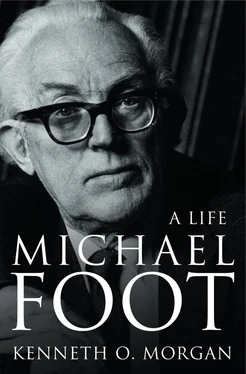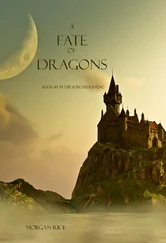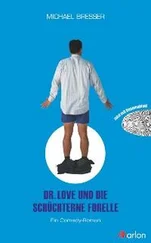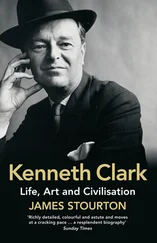1 ...6 7 8 10 11 12 ...41 The most distinctive feature of Michael’s political involvement at this time was in the peace movement. This was hardly surprising for a pupil of Liberal background attending a distinctively Quaker school. Leighton Park’s headmaster, Edgar Castle, was a Manchester Guardian reader and a strong supporter of world disarmament. A League of Nations branch flourished at the school, in which Foot was active. He wrote in The Leightonian (March 1931) a sharp critique of scouting as an activity for young people. Its specious militarism and patriotism, and the unquestioned authority of the scoutmaster, were appropriate targets for the seventeen-year-old boy: ‘Scouting must not, hermit-like, shut itself off from the modern world.’ He added one phrase intriguing for the student of his career: ‘We are not meant to play at backwoodsmen all our lives.’
At the age of eighteen, between 7 August and 4 September 1931, in the summer vacation after his last term at Leighton Park, Michael made his most decisive, emphatic gesture yet by taking part in a young people’s peace crusade that took him abroad for the second time (he had had a trip to Holland in May 1931). He went with another boy, L. H. Doncaster, on a John Sherborne bursary which covered all the costs save for £ 10. They travelled as far as Colmar in Alsace, sleeping rough on ‘a bed of straw in the village schoolroom or a haystack in the cowshed’, though making only limited contact with the other marchers, who were entirely French-and German-speaking. They sang collectively a French song, ‘Nous faisons serment d’alliance’, the words of which were fresh in Michael’s mind seventy-five years later. He paid tribute to their one mobile assistance, a donkey who discharged his duties ‘in a manner which would have put Balaam’s ass to shame’. Michael pressed on to Strasbourg and then to Germany, to the Black Forest. Here, for the first time, he heard the name of Adolf Hitler. It was virtually a holiday, but he enjoyed ‘a pervading sense of self-righteousness’, for all this was done in the cause of peace. The child was father of the Aldermaston marcher. He had enjoyed his schooldays, and his school seemed pleased with its association with him. In the late 1940s the brass plate from his time at Leighton Park was still on display on the door of his old study in School House. In 1990 he spoke at length, wallowing in happy nostalgia, at a school centenary dinner in a private dining room in the Commons. He remained a faithful Old Leightonian to the end. 26
The decisive change of life for the young radical was to come in 1931, when he followed Dingle and John in becoming an undergraduate at Oxford. This had long been a cherished ambition for Isaac, despite the considerable sums he was obliged to pay for Dingle, Hugh and John at the older universities. Michael at school showed a quick intelligence and literary flair, especially in his history essays. But his teachers’ assessment of his abilities was sufficiently cautious that he was sent forward for entrance examination not to Balliol, the destination of Dingle and John before him, but to the less prestigious Wadham in the same college group, where the competition for places might be less demanding. He took papers in his favoured subjects of Modern History and English, but his greatest good fortune came in his general paper, in which a question asked candidates what proposals should be made by the current Round Table conference in London considering the future governance of India. As noted, Isaac Foot was himself a Liberal member of that conference, with first-hand knowledge of the views of Gandhi and others on India’s future. The night before he sat the paper Michael had had dinner with his father at the National Liberal Club in London, and Isaac had given him a lengthy briefing on future proposals for an Indian federation, along with discourses on the social and economic problems of Indian Untouchables and others. Michael’s examination answer in Oxford the following day was therefore unusually authoritative. His interview with Wadham’s tutors went equally well, especially a discussion with Lord David Cecil, then at the college. Asked by Cecil which historians he particularly admired, Foot naturally shone. His enthusiastic defence of Macaulay’s History of England , reinforced by some additional warm comments on Macaulay’s kinsman George Otto Trevelyan, saw him comfortably home, a college award-holder as an exhibitioner. 27
So it was to Wadham that he went for the Michaelmas term in October 1931. He stayed for the next three years, the first two years in college, the third in lodgings in the city with his close friend John Cripps. It was a dampish house quite near the river, which did not improve his asthma. Foot’s devotion to his remarkably beautiful college henceforth was unshakeable. Half a century later, in his volume of essays Loyalists and Loners , he hailed it as ‘of all places the greenest and most gracious, the peerless and the most perfect in the whole green glory of Oxford’. Wadham’s virtues were innumerable: it was founded early in the seventeenth century by a woman, Dorothy Wadham, it nurtured the philosophical learning of John Wilkins, the seamanship of Robert Blake, the church-building of Christopher Wren, it spanned almost every aspect of Michael Foot’s intellectual universe. He later became friendly with its formidable future Warden Maurice Bowra, famous for epigrams such as ‘Buggers can’t be choosers.’ Bowra was no socialist, but he shared Foot’s eclectic antiquarianism. On one bizarre occasion in August 1962 he tried to act as a kind of peacemaker between Foot and the Labour leader Hugh Gaitskell when they found themselves, perhaps to their mutual horror, in the same bar in the small Italian town of Portofino, but Gaitskell’s enmity was implacable. 28 No honour pleased Foot more than to be elected an Honorary Fellow of the college in later years. Michael Foot was a supreme Oxford man, but also passionate for the collegiate atmosphere of his college. Dorothy Wadham was so admirable a woman that, in his whimsical view, had she lived centuries later she would have applied for membership of the Labour Party.
Foot’s years at Wadham down to June 1934 were enriching in every way. After eighteen years in the evangelical intensity of Plymouth, Pencrebar and Leighton Park, he moved into a different atmosphere and he blossomed in it. Previously somewhat withdrawn and bookish, worried about his health and his complexion, he emerged as an attractive, gregarious young man. He had interesting and intelligent friends (almost all male, as befitted the ethos of the time) of various backgrounds and nationalities, and enjoyed a full social life, quite apart from his ventures into student politics. There were lectures by eminent scholars in the examination schools – G. D. H. Cole’s lectures on William Cobbett he particularly enjoyed – and visiting celebrities of all kinds. One such he got to know personally, and with whom he was destined to have a complex relationship, was the philosopher Bertrand Russell, who lectured to the Oxford Liberal Club during Foot’s term as chairman. His book The Conquest of Happiness (1933) had a powerful effect on the young Michael Foot, not only in his views on political matters but also on personal morality. 29 Foot, a natural romantic much influenced by his reading of Rousseau, was fast moving on from the Methodist ethic. To apply his own memorable description of Aneurin Bevan, the puritan was an increasingly sensual puritan.
His prime objective, of course, was to gain a reasonable degree. Here the results were adequate, but perhaps no more. Michael had chosen not to read History, the natural choice for him, his passion and hobby for many years past, but the newer school of Politics, Philosophy and Economics, also known as Modern Greats. This was not perhaps the best choice. The Politics papers were fine, not least because they were heavily historical in slant, and were to remain so until the 1960s. He did, however, regret that his passion for late-eighteenth-century history, through liberal authors such as George Otto Trevelyan and J. L. Hammond’s study of Charles James Fox, was diverted to having to focus on Lewis Namier’s structural studies of Georgian politics and his ‘formidable lists of figures’. 30 Economics he found less appealing, in part because of his relative lack of interest in maths or statistics. His tutor, Russell Bretherton, a brilliant twenty-five-year-old who taught both economics and modern history, was congenial enough as a staunch supporter of the expansionist economic theories of J. M. Keynes (as understood before the latter’s General Theory of 1936). He was also friendly with the Christ Church economics don Roy Harrod, Keynes’s later biographer. Bretherton was certainly a man of parts. His later publications included Country Inns and Alehouses , while he also developed much expertise as an entomologist specializing in butterflies. After the war he was to become an important civil servant, working under Harold Wilson at the Board of Trade and under Peter Thorneycroft at the Treasury (where he proved to be a strong European). At any rate, Bretherton’s Keynesian doctrines got Foot through his economics papers in the schools. But Philosophy, even in the days before Oxford plunged into the arid realms of logical positivism, he found less than riveting, too abstract and detached from real life. In the end last-minute swotting of a textbook survey by Bertrand Russell, one of his political heroes, saw him stagger through. He told The Leightonian that ‘after two years’ hard work at Philosophy, I know less about it than when I began’. 31 But his eventual honourable but unremarkable second-class honours suggested that perhaps PPE was not the ideal school for him. Then as always Michael Foot was never a man for socio-economic detail. He was a sounding board for historical mood and movement, and literary interpretation of it, rather than an analyst, still less a desiccated calculating machine.
Читать дальше












